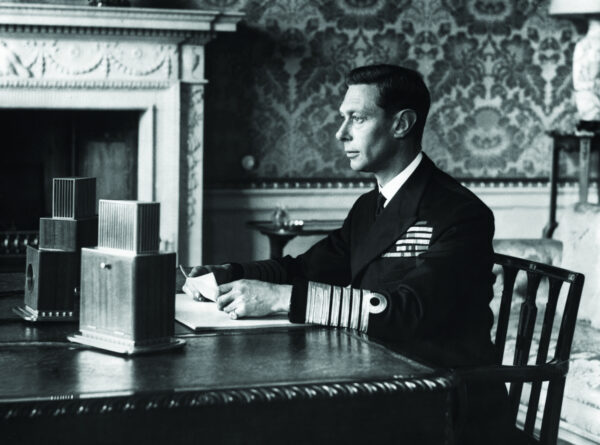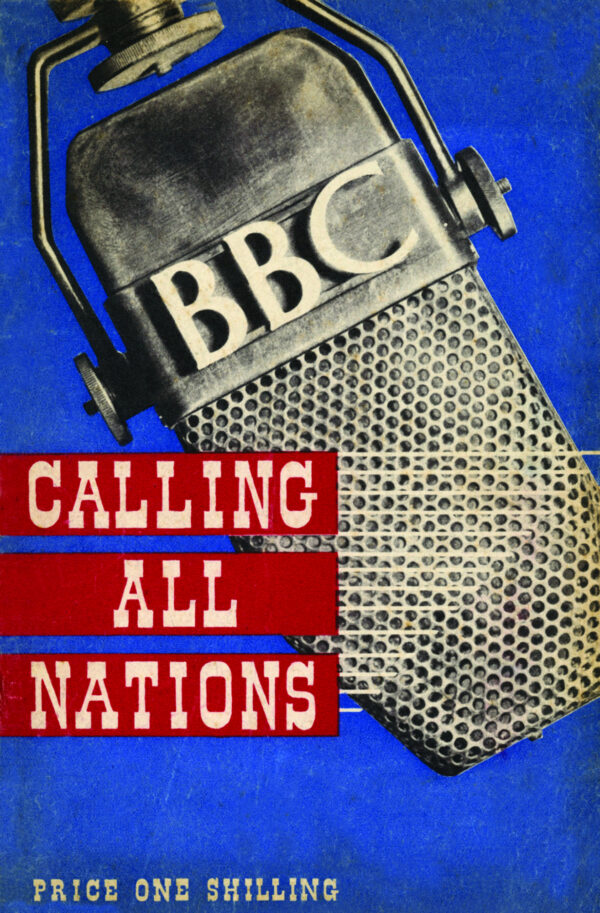This Is London!
Paul Robinson, former Radio 1 and Network BBC Radio Director, argues that the World Service is still a globally respected force

By Paul Robinson
October 7 2024
The BBC, along with the Royal Family and the Premier League, is one of the most recognised British brands in the world. For more than a century, the BBC World Service has been showcasing British culture, creativity, and values across the globe. Together with the BBC News Channel and BBC.com, weekly international audiences are around 450 million people. At home in the UK, the BBC appears susceptible to banana skins. Recently, top BBC presenters have been embroiled in allegations of bullying and acquiring narcotics, and freelance stars using social media to make political statements, appearing to fly in the face of the BBC’s rules on impartiality. The majority of the UK’s citizens are still willing to pay the licence fee, which this Spring went up by another £10 to £169.50 per year, but there are an increasing number of households, mainly younger, who are not. Avoidance is punishable as a criminal offence, but only if you consume UK linear channels or BBC iPlayer. At a recent speech to the Royal Television Society, BBC Director General Tim Davie laid out his priorities for the corporation as investment in British storytelling, factual news and bringing people together. In Britain, BBC News attracts probably more than its fair share of criticism. The BBC official line here is that if both left and right make accusations of bias, then they are probably getting it about right. Whilst there may be virtue in this argument, it’s a bit too cosy to hold water. Davie has consistently stated that it is essential that BBC News is impartial, but mistakenly, and increasingly frequently, the solution by BBC journalists is to interview someone with an opposing view to any story. The result is not balance, or analysis of data or issues, but merely to give airtime to a spokesperson with little or no rationale to back up assertions, but who is delighted to gain exposure on the BBC.
There may be the odd detractor, but I believe it is accurate to say that the BBC brand is loved and admired more deeply and more passionately overseas than in the UK. In part, this is because the BBC’s services, news in particular, address a gap in the provision of trusted news in many countries. The USA, the largest economy in the world, is a great example. I was in Los Angeles for Super Tuesday in March, whose outcome was the Biden/Trump contest in the November US elections. I was glued to the TV that day, and was struck that, BBC aside, the only choice was the Biden-loving CNN or Trump-loving Fox News. No impartiality, no objective reporting, no analysis, just hyperbole, each channel reinforcing the existing beliefs of the viewers. It is therefore not surprising that the BBC’s accurate and impartial reporting makes it a trusted brand amongst both ‘mass’ and ‘influencer’ audiences. BBC research (2021) scored BBC News higher than all its competitors in the G20 on accuracy (59%), impartiality (48%), and independence (48%).

The BBC World Service has historically been funded by a Grant in Aid from (what is now) the Foreign, Commonwealth and Development Office (FCDO) and was largely autonomous from the licence fee-funded BBC ‘Home Services’ for UK audiences. When the FCDO funding was abolished to force the BBC to eliminate duplication and make cost savings, there was a fundamental shift in mindset. The World Service lost its Bush House HQ and was forced to move into Broadcasting House in Portland Place, London. The BBC World News TV channel was merged with the domestic BBC News channel, retaining the studio bases in Washington DC and Singapore, albeit much of the content is now shared. When it launched, it suffered a number of operational disasters on air. However, it settled down, and the arms-length (from the Government) licence fee means it is not in the pocket of the Government or commercial organisations and can therefore be truly editorially independent. The BBC’s reputation is strongly linked to positive perceptions of the UK, and it is therefore a powerful cultural export as an influencer. It is a leading power in communicating British values of open exchange of ideas, information, and values, fostering greater understanding and co-operation. Research has shown that overseas users of the BBC World Service are more likely to share British liberal values, and the more that ‘influential’ audiences, such as business leaders, consume BBC News, the more likely that they will invest in the UK, use British goods and services, and visit the UK.

The BBC is also a strong force against disinformation and state-sponsored propaganda, from nations such as China, Russia, and Iran. BBC investigative journalism has uncovered evidence that Uganda’s security forces were responsible for the killing of 50 civilians in Kampala, and similar endeavour revealed the massacre of 15 or more men in Ethiopia. So, in addition to the BBC’s Reithian purposes to inform, educate and entertain, its overseas services deliver another public purpose: to reflect the UK, its cultures, and values to the world. The Director General of the BBC is well aware that, despite its f laws, the licence-fee funding model is the best means of ensuring continuity of purpose and quality. The BBC is rightly looking at other means of funding, though, as Davie has explicitly mentioned in recent speeches. The challenge is that the options — broadly, direct-Government funding, subscription (akin to Netflix), advertising, or public donations (as is the case for NPR in the USA) — all have major flaws. The risk for the BBC is loss of independence, or loss of revenue, and therefore diminution of scale and scope. The BBC World Service is a brilliant British institution and one of our best exports. Its future, however, is inexorably tied to the future of the BBC’s domestic public services. The argument for a strong BBC, to deliver British values, has never been more important.
Event Highlights
Discover what's going on at our locations
